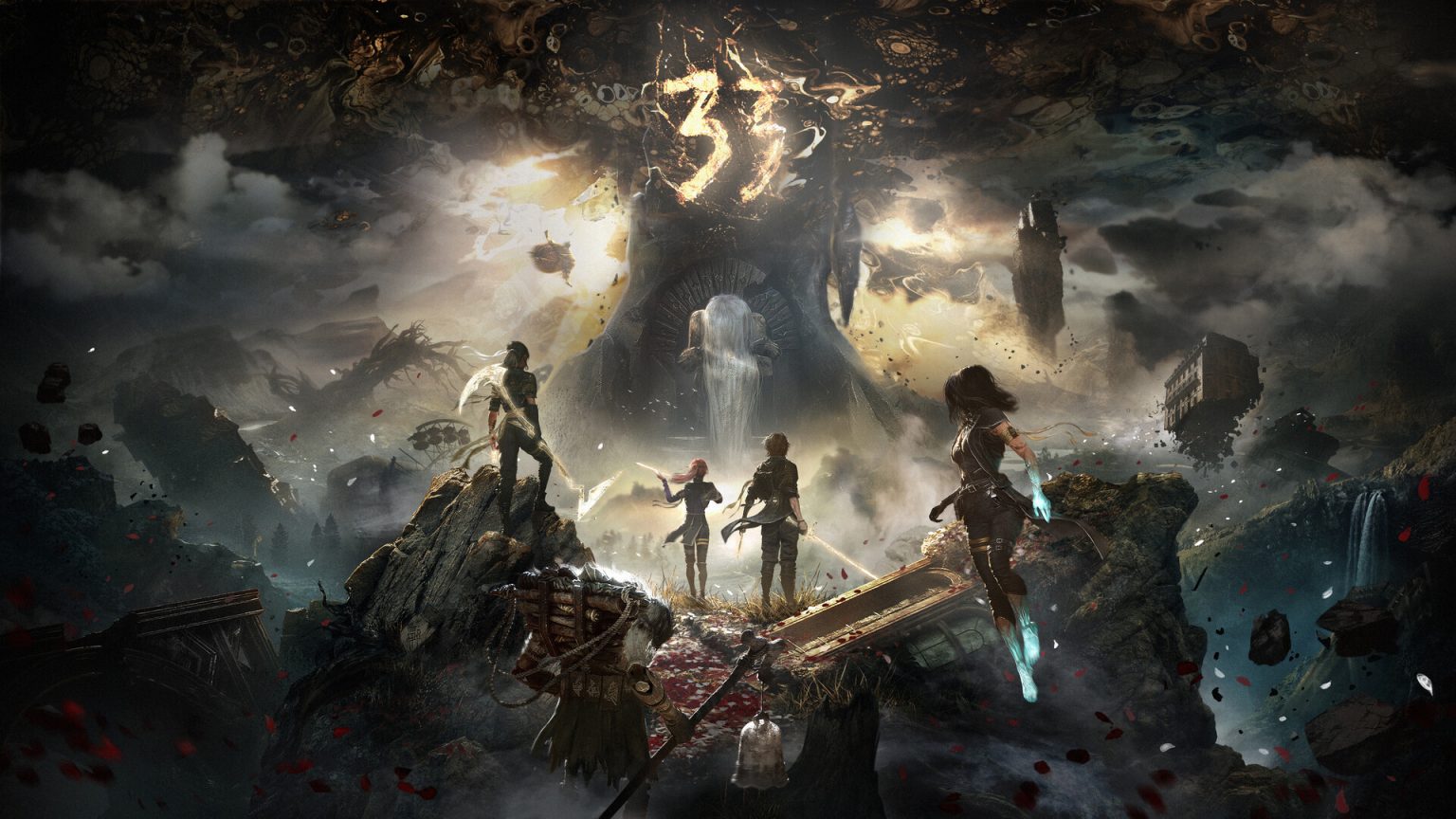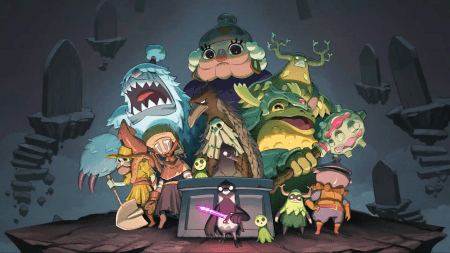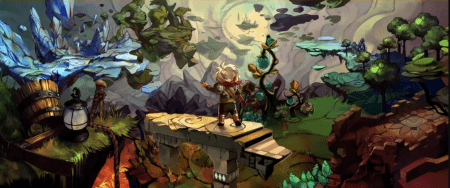Welcome back to Therapy Gaming! This month, we’re looking at Clair Obscur: Expedition 33 and its takes on grief and messy family dynamics.
I tend to open my Therapy Gaming pieces with a story about my life interweaving with games. I have been lucky(?) to have had many experiences that lead into the complicated webs that games can weave. Usually, a game only really tries to tackle one of those touchy subjects. Whether it be family grief or identity or the nature of existence itself, stories that broach hard topics try to stay in one lane.
Clair Obscur: Expedition 33 bucks that trend with an aggressiveness that I am still processing. You want family trauma, musings on the nature of existence, and the allure of addiction? Clair Obscur has it all and more! Wrapping up the game, I was left agape at how many things the story at least brushed on, even if not everything is handled with the utmost care. For this piece in particular, I’ll be focusing on the familial complexities Clair Obscur attempts to grapple with. At the game’s core, after all, is a story about family. How family can manipulate us, destroy us, and heal us all at once.
(Major spoilers ahead for Clair Obscur: Expedition 33‘s main story.)

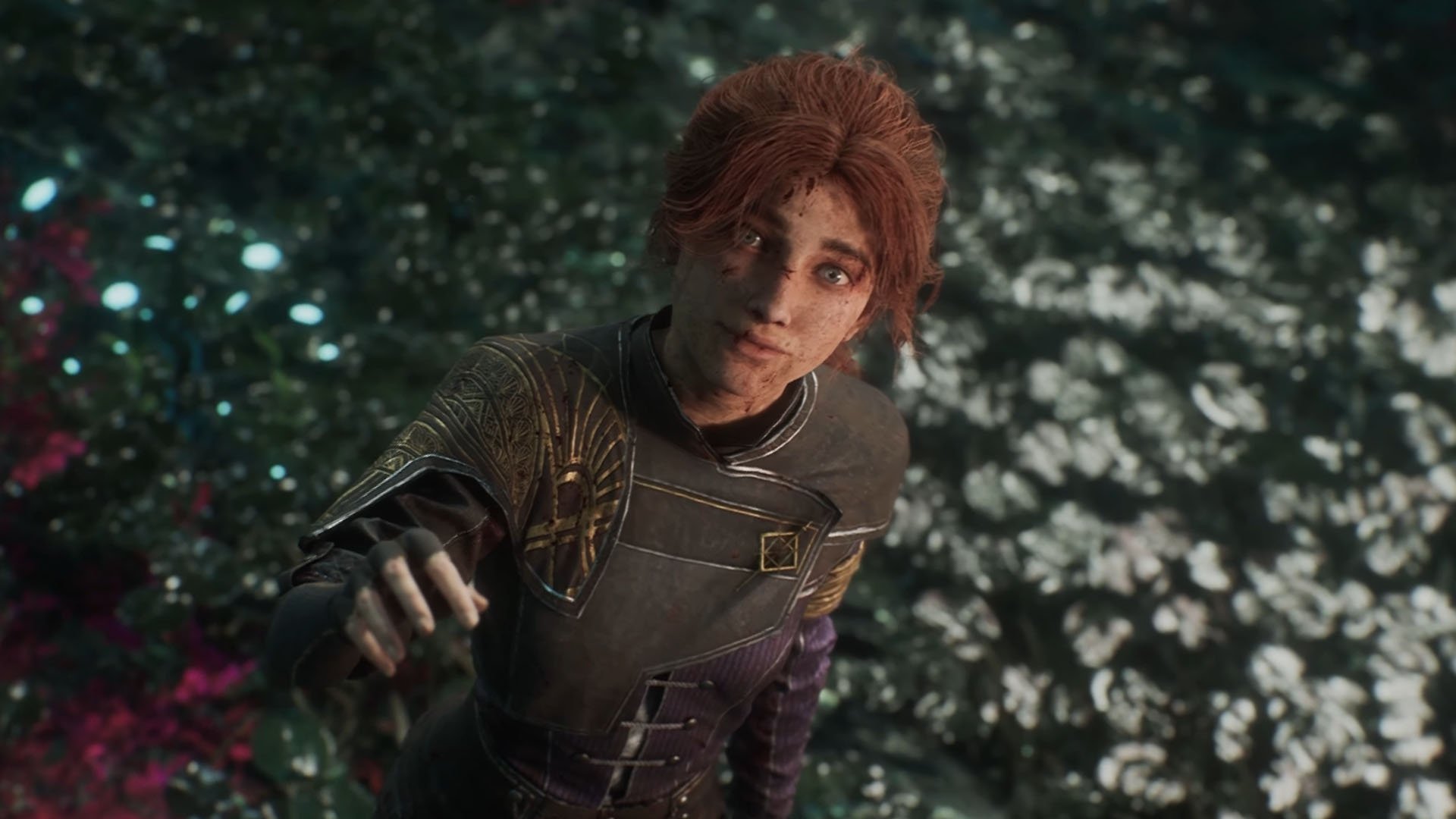
A Binary Choice
The endings of Clair Obscur present the player with a complicated choice. One choice allows you to give a tortured, wounded girl named Maelle the solace she wants. The other destroys the painted world the game exists within, forcing all involved to live within the consequences of the real world but with the opportunity to grow and heal. Neither ending is perfect. In the first, the fragment of the deceased painter Verso’s soul embedded within the painting is forced to continue maintaining the world against its will. In the second, that same wounded girl is forced to live in a world with no voice, power, or agency anymore. Just a ghost of past mistakes and naivety, confronted with the consequences of her actions.
Now, I’ve already written about my feelings toward game endings where the main character stagnates in a created world. But, rather than the singular ending presented in Supergiant Games’ Transistor, the player does have some agency here! You can reject the created world and have Maelle live on, physically. Sure, that world is cruel and cold, gripped in a persisting conflict against an unseen enemy. But that has to be better than stagnating, right? At least in the second ending, Maelle has the chance to heal and make something new for herself, instead of being trapped in the cycle of her past. So, with my pre-established biases, I chose that ending first. While I maintain it is the more optimistic choice, I was left cold toward the resolution itself.
(A quick context note: The entire Dessendre family we are discussing are called Painters, folks with the supernatural ability to create living worlds within paintings. I’ll be using the terms Canvas and Lumière to discuss the painted world created by Maelle’s brother, Verso.)
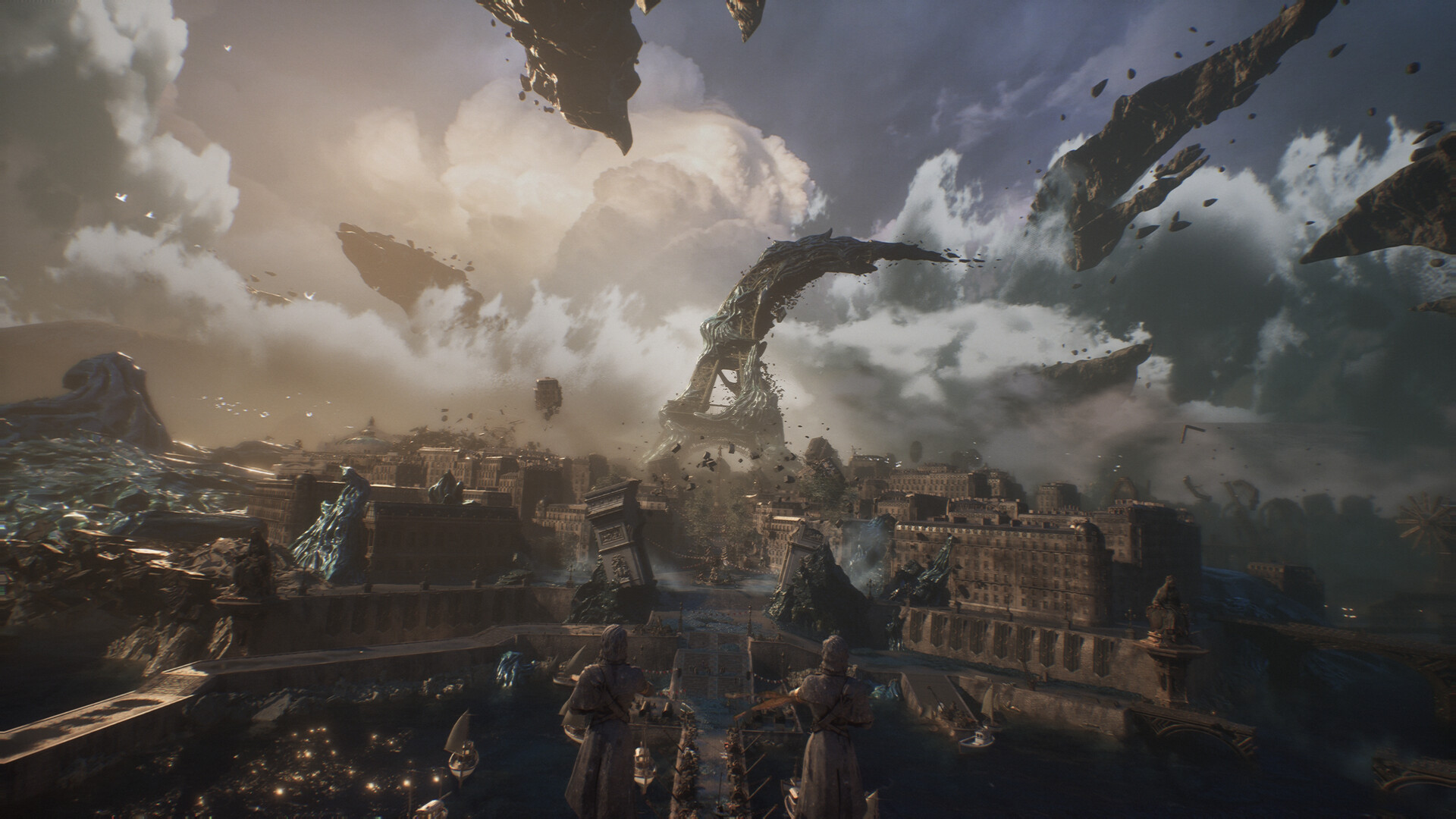
Burned Future
In either ending, the player is left to decide whose actions they feel are most justifiable. Maelle, scarred and burned, just wants to be in a world where she can live without those scars. In Lumière, she can be free. She won’t have to deal with a mother who wields her grief like a weapon and blames Maelle for her beloved son’s death. There is no older sister willing to use her as a pawn in a never-ending war as simmering rage eats away at her. And no father, desperate to have his whole family back, willing to sacrifice short-term happiness for long-term healing. Lumière gives her a chance to roll back the clock and live the life she always wanted, next to the brother who gave her a chance to live, alive and well within the Canvas.
To do that, however, Maelle must ultimately reject the gift her brother gave her. Staying in Lumière means letting her physical body decay and die, until she simply ceases to be. She’ll give up the life that Verso gave her, instead escaping into a world he created under duress. You see, Verso never wanted to be a painter. He wanted to cast off his parents’ expectations and follow his love for music. His gift for creating Canvases, for bringing worlds to life through paint, was a curse to him. And this Canvas is a monument to that trauma, to a world he built to escape. Now, it’s a vehicle for his sister to try the same.
The Canvas is a monument to that trauma, to a world Verso built to escape. Now, it’s a vehicle for his sister to try the same.
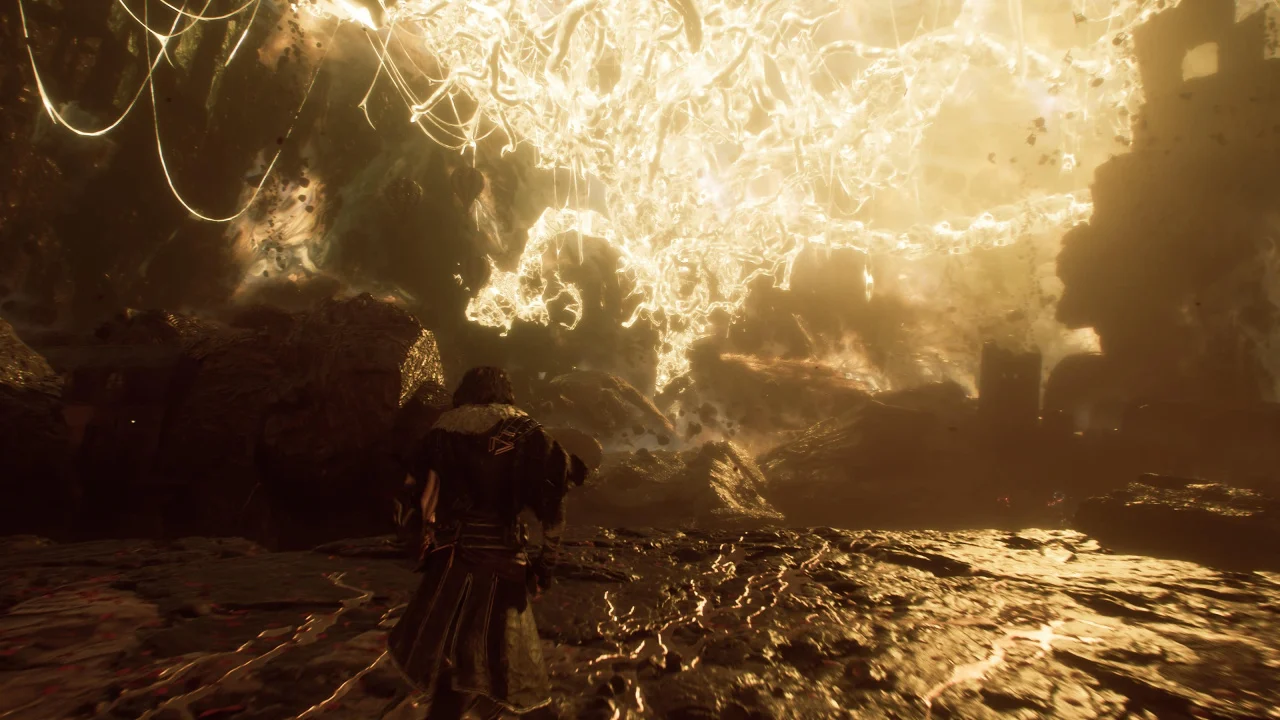
Sins of the Father
And that brings us to the other choice, the choice that aligns with Renoir, Maelle and Verso’s father. Hell-bent on destroying the Canvas to free his daughter and wife, both of whom have become lost in its allure, Renoir is positioned as the villain for much of Clair Obscur. After all, he wants to remove the last vestiges of Verso from the world in an ill-advised crusade to heal his family. He ignores the wishes of his wife Aline and daughter Maelle. He has decided that the Lumière Canvas is a drug, intoxicating and destroying his world. So it must be purged.
The problem, of course, is twofold. First, Renoir isn’t wrong. Maelle and Aline are addicted to the Canvas. They are using it as we would drugs, to numb our grief. They aren’t using the Canvas to heal; they are using it to hide. Hide from the harshness of grief. Hide away from the pain. And so, like many families before him, Renoir attacks the drug rather than the cause. Where we may lock the liquor cabinet or ship someone off to rehab, Renoir wants to eliminate the ability to use. All because he’s certain that once it’s gone, his world will get better. His family will be as whole as it can be again. He just needs the drug gone.
Like many families before him, Renoir attacks the drug rather than the cause.
But where Renoir fails is that he never attempts to listen to what his daughter and wife are trying to tell him. That this pain is overwhelming, and that they need help. Instead, he decides he knows what is right, and that they will both run again once the crutch is gone, so it’s time to destroy the crutch.
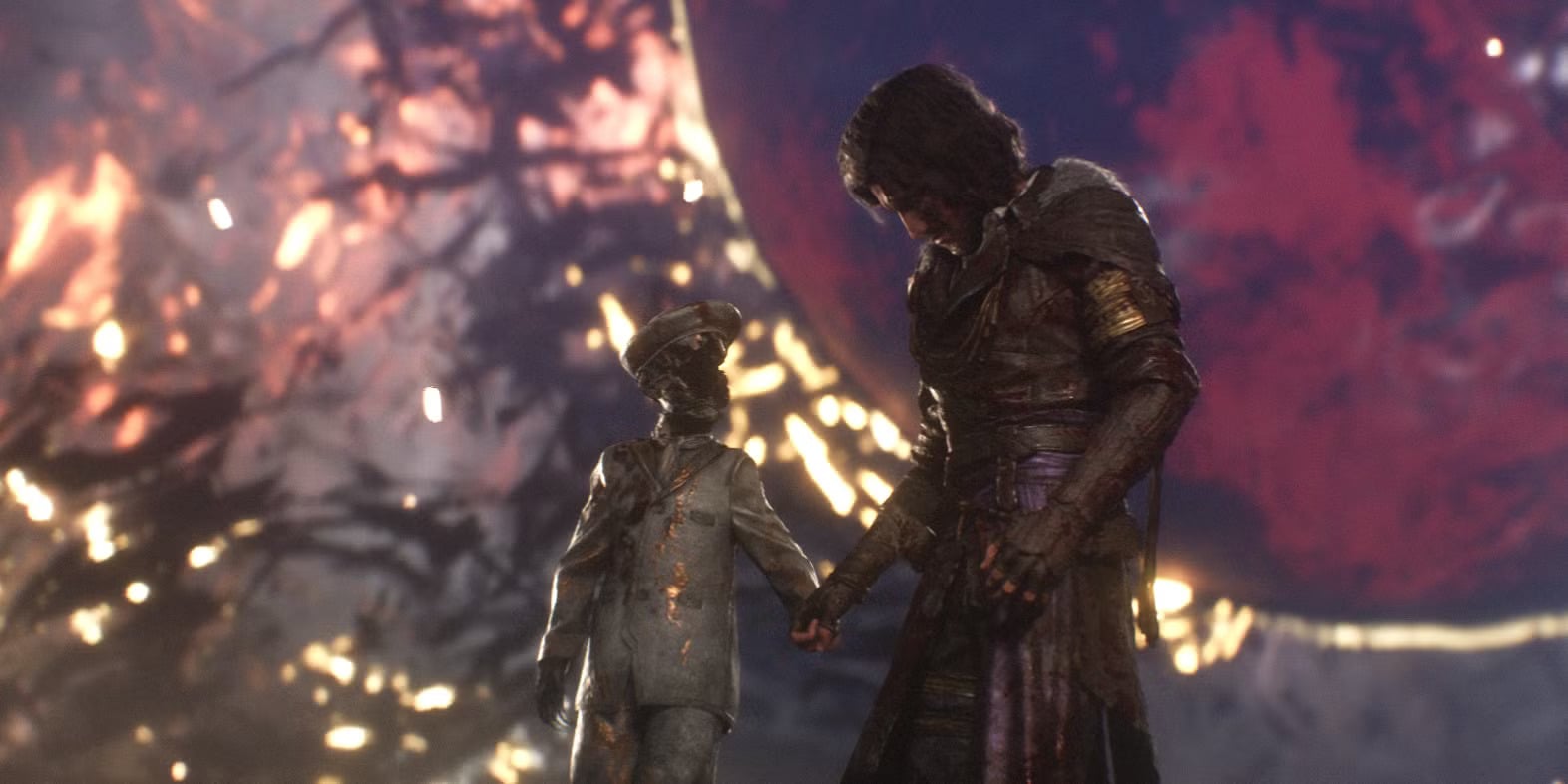
A Mess You Can’t Sweep Up
Where Clair Obscur succeeds the most is in its refusal to leave the world cleanly. Grief is messy. Even the best actions and intentions can be distorted and warped by grief. And that is what Clair Obscur wants to leave as its parting message: that when it comes to family trauma, there is no clean break. Neither ending is satisfying in the end. Maelle is left to suffer regardless, either a slow death within Lumière or a wordless existence in the outside world. Renoir will never have his family back, regardless of the existence of the Canvas. And forgotten in all this is Verso.
Verso, who never wanted to paint. Who gave his life so his sister could live, but not live as the focus for everyone’s grief. Who built a beautiful ode to a life he wanted, but could never have. Who remains a looming specter over everyone’s actions. Renoir and Maelle both believe they are living in honor of his memory and doing what he would want from them. Unfortunately, they can never know if that’s true.
After all, the only thing left is a boy, crouched over a canvas, who just wants to stop painting. And no one wants to listen. Consumed by their own pain, Maelle and Renoir won’t listen. Not to each other, not to themselves, and not to their memories of Verso. All that matters, to either of them, is to escape their grief however they can. Whether by burning down the world around them or pretending the grief never existed, the Dessendre family is solely focused on their own pain.
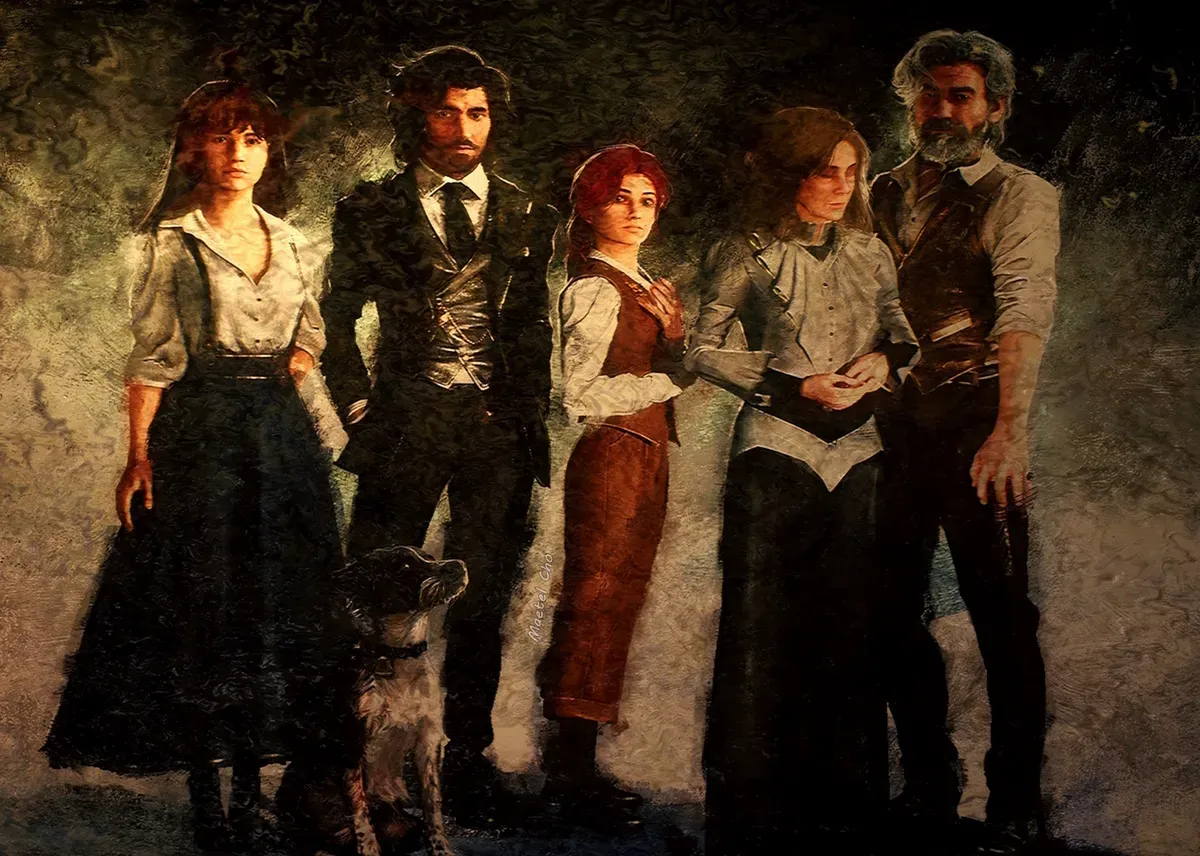
Our Own Painted Worlds
Grief isolates us more than any other experience. While we can share the experiences of pain, our grief only exists in our own little worlds. No one will grieve the same way, even over the same event.
Clair Obscur gives us that messiness in gameplay form. And in the end, there is no “good” ending. There is only what brings someone peace in their pain. While I myself will always advocate for taking the next step forward through grief, that isn’t the right choice for everyone. It’s okay to need to step away from the pain and find comfort in other places. But we all must strive to reach out and be there for one another through it.
After finishing Clair Obscur and sitting with its themes for a while, I found myself wondering what could have been different if Renoir had simply talked to his daughter. Heard, in her words, the pain she was feeling. The survivor’s guilt, the lasting shame, the literal pain of losing her voice. What actions would he have taken? Would Lumière survive, as a cherished memory of the lost but consumed healthily? Would Maelle have learned to use that escapism in moderation, while slowly walking her own path to healing? While this still ignores the chunk of Verso’s soul that wanted to stop painting entirely, at least the other beings he created would live on.
I found myself wondering what could have been different if Renoir had simply talked to his daughter.
Instead, the Dessendres each decide they know what’s right for themselves and the people around them. That their grief is the grief that matters, consequences be damned. They each wield their pain as a cudgel until one surrenders. No healing happens, no growth. Just assurance to one side or the other.
In the end, I believe Clair Obscur is a beautiful piece about the messiness of grief. However, that doesn’t shake the messiness of the endings themselves. Many floating questions remain, ideas presented without follow-up. Maelle herself seems to grow in the Act 3 side content, but that growth is ultimately tossed away in favor of a binary decision. Maybe that’s just video games, where nuance disappears once it’s time to close the book.
Or maybe that’s just life and grief itself. Open questions, lasting pain, and no final resolution until the credits roll. We are left simply wondering. Wondering, and reaching out for compassion from those around us.
For more on Clair Obscur: Expedition 33, read our thoughts on its terrific opening hour.
Gary is a jack-of-all-trades video game enthusiast based in Boston, MA. A semi-professional fighting game player, even less professional Apex Legends player, and even less professional adult, he spends most of his time poking at strange indie gems and reading about the need for more diverse voices in gaming criticism. He invites anyone to recommend anything he's missed in the gaming world via Twitter or BlueSky, where he can found under the username @grtnpwrfl. When he isn't spending his time playing games, Gary is an avid New England Patriots fan and frequent hiker.


